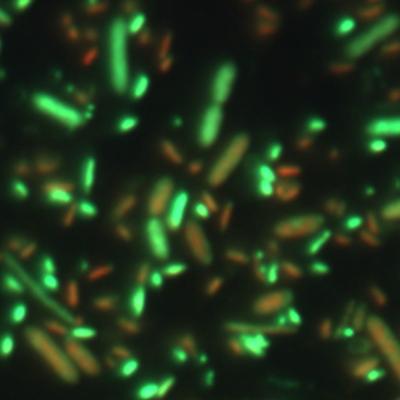DeepHotMicrobe

Diverse microbial communities live in ancient, isolated and millions of years of old groundwater in deep Finnish bedrock. A drill hole reaching to the depth of seven kilometers is going to be drilled in Otaniemi, Espoo, enabling us to study just how deep life can reach inside the Earth. This research will answer questions such as how deep can we go and still find signs of life? What kind of single-celled organisms, i.e. microbes will be found? Are we going to detect completely new lifeforms or superorganisms that are adapted to extremes? Is this life active in depths?
Life on Mars?
High temperature and salinity in addition to anoxic environment and low concentration of nutrients typically define life in the deep crystalline rock. Conditions deep inside bedrock resemble the situation on early Earth when life first emerged. Similar environments may be found from other celestial bodies, such as from Mars. By studying the microbial community structure and functions in deep bedrock of Otaniemi will allow us to determine the limits of life, as well as to understand the possibility of emergence of life in other places in the Universe.
You can help us too!
You can join in and be part of this groundbreaking research project. You can back up this project by purchasing a reward you will be informed of the progress of the project in form of a newsletter. You can also get a piece of rock from the depths with description of the lithology and environmental conditions in this specific depth, or a lecture about the project and science behind it, held by a scientist working in the project. Funds collected with this crowdfunding campaing will be used to the challenging microbiological sample collection from the Otaniemi ultradeep drill hole.
Our research consortium
DeepHotMicrobe project is a part of larger research consortium formed by experts and researchers from St1 Deep Heat, University of Helsinki, Geological Survey of Finland (GTK) and VTT Technical Research Centre of Finland. In the future St1 Deep Heat will provide environment-friendly, emission-free heating to the 10 % of the population of Espoo, second largest city in Finland. They will provide access to the scientific studies in the drill hole. Research scientist Lotta Purkamo and senior scientist Malin Bomberg, who both have several years of experience on microbial ecology and deep terrestrial subsurface research, will be responsible of the microbiological analyses. Both work at VTT that provides a world-class research environment and a platform for new technology innovations. The scientific collaboration is lead by Principal Investigator and geophysicist Ilmo Kukkonen from the University of Helsinki, and hydrogeochemistry of the drill hole will be analyzed with expert team from GTK.
